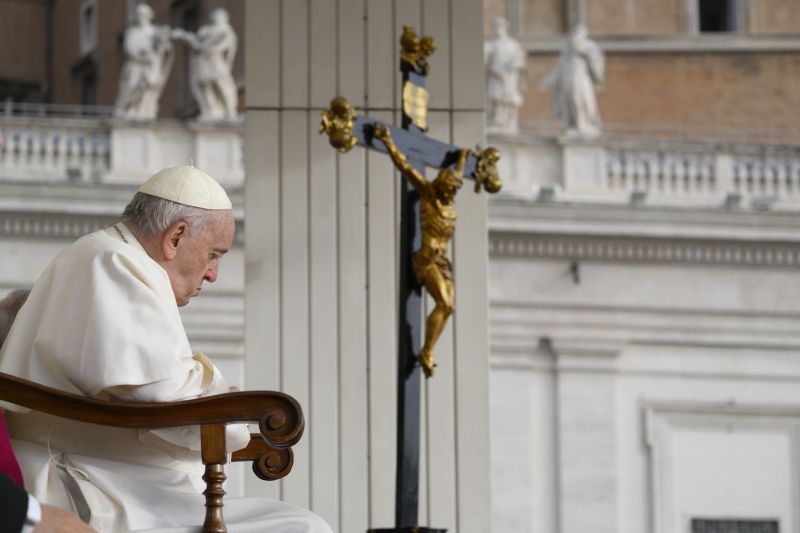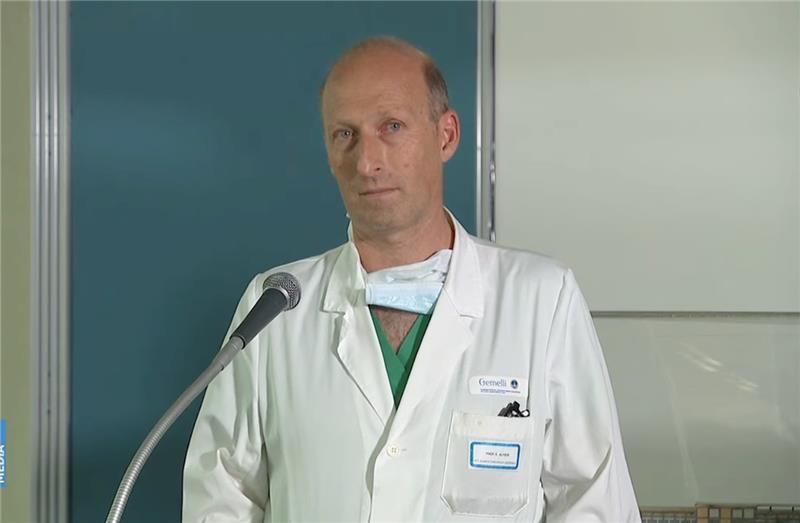
Denver, Colo., Jun 23, 2023 / 09:15 am (CNA).
Pope Francis on June 23 sent a heartfelt video message to a 17-year-old Portuguese girl suffering from a serious illness.
Edna sent the Holy Father a letter expressing her sadness for not being able to attend World Youth Day this year in Lisbon. Although she registered for the event, she told the pope that she will not be able to attend physically. The young girl deeply desired to meet Pope Francis.
She wrote in her letter: “When I heard that the [World Youth] Day would be held in Portugal, I was very happy, because every time I see the pope speak on television, I feel well, as if I had no illness that would prevent me from participating in the WYD.”
Edna added that she wanted to meet the pope so that she could tell him “how important he is for her and her family.”
#PapaFrancesco: “Edna, ho ricevuto la tua lettera, grazie! Grazie per la tua tenerezza e grazie per la pace che hai nel cuore. Questa pace è come un seme piantato nel cuore di tutti noi che ti vediamo e di tutti quelli che parlano con te… 🧵 pic.twitter.com/YSSEaa1G4n
— Vatican News (@vaticannews_it) June 23, 2023
However, the teenager doesn’t know how much longer she has to live. She has been suffering from a serious illness for the past eight years.
“The doctor said that he does not know when I will meet Jesus, but that it will happen soon,” she wrote.
Moved by her words, Pope Francis sent Edna a personal message to thank her.
“Edna, I received your letter; thank you! Thank you for your tenderness and thank you for the peace in your heart,” the Holy Father said.
He added: “This peace is like a seed planted in the hearts of all of us who see you and all those who talk to you. Thank you! I accompany you on this journey that you are making. I accompany you and I know that you will be well received. I accompany you by praying for you, praying with you, and looking at Jesus, who is always waiting for us. Thank you!”
In her letter, Edna asked for the pope’s prayers. In his video message, he asks her to keep him in her prayers.
“And now I give you my blessing so that it may also give you strength on this journey,” he concluded.
If you value the news and views Catholic World Report provides, please consider donating to support our efforts. Your contribution will help us continue to make CWR available to all readers worldwide for free, without a subscription. Thank you for your generosity!
Click here for more information on donating to CWR. Click here to sign up for our newsletter.





Prayer is a powerful tonic in the armory of the sick, the weak and the ailing. Wishing Edna strength and courage. God bless.